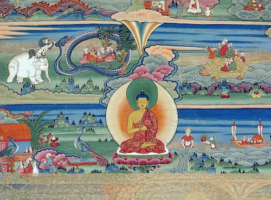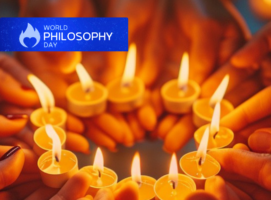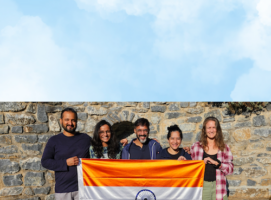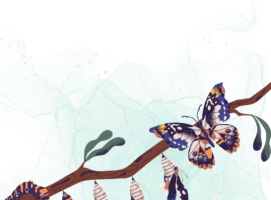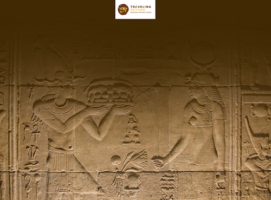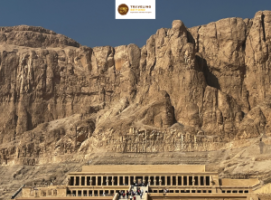Showing 437 articles
The Importance of Hope
Author: Shraddha ShettyFebruary 18, 2025
The story of Pandora is an ancient Greek myth of which many different versions exist. The one written by Hesiod in the 7th century BCE, tells of Zeus, angered by the Titan Prometheus, who gave the gift of fire to humankind, was determined to exact retribution not only from Prometheus, but from all of humanity. [...]Jatakas: The Eternal Interplay between Virtue and Karma
Author: Malini NairFebruary 18, 2025
Jataka in Sanskrit means birth stories. The Jatakas are a collection of over 500 stories that recount the past lives of Siddhartha Gautama, the being destined to become the Buddha. These tales, preserved in the Pali Canon and dated between 300 BCE and 400 CE, are an integral part of Buddhist literature, encompassing profound moral [...]The Lessons of Prosperity
Author: Gilad SommerNovember 2, 2024
‘No society can surely be flourishing and happy, of which the far greater part of the members are poor and miserable.’ (Adam Smith) “The best things in life aren’t things.” (Art Buchwald) The twenty-first century has provided mankind with one of its most important experiences and lessons – material prosperity is not enough for human flourishing. Like [...]Building Values of the Olympic Spirit
Author: Shruti ChopraOctober 1, 2024
Some of us from New Acropolis (India North), along with 17 other countries came together to take part in the 8-day long, Philosophical-Sports Pre-Season event in Greece. But what is a Pre-Season about? How does New Acropolis, a School of Philosophy connect with the School of Sports? What does it mean to be a Philosopher-Athlete [...]Losing the Battle, but not the War: Life Lessons through Muay Thai
Author: Sheetal ShettyOctober 1, 2024
I plunged into the sport of Muay Thai as an adventure, to know and develop myself as an athlete, but little did I know that I would be learning much deeper lessons of life; in how to be an inner warrior. Muay Thai (Thai boxing) is a martial art and combat sport known as the [...]Traveling Beyond: Egypt Explorations with New Acropolis India Part 3 – The Myth of Osiris
Author: Gauri DhawanOctober 1, 2024
Traveling Beyond: Explorations with New Acropolis India, is an opportunity to travel with a philosophical lens, to visit places, not only as a tourist, but also as a seeker of truth and beauty. To try to uncover together, the wisdom that exists in the world, and to extract from it something that we can apply [...]Making Music from the Heart: In Conversation with Fali Pavri
Author: Manjula Nanavati (compiled by)October 1, 2024
Born in Mumbai, trained in Moscow and London, Fali Pavri is the Associate Head of Keyboard and the Professor of Piano at the Royal Conservatoire, of Scotland. He joined a New Acropolis Culture Circle audience in Mumbai through a video conference call, from Glasgow, where he both spoke and played for us, passionately, from his [...]Speed Reading or Slow Reading
Author: Antonin VinklerJuly 27, 2024
Speed reading has its benefits – it saves time where there is a lack of available hours or days, and the volume of pages is staggering, or where the attractiveness of the content does not exceed that of an instruction manual. The problem generated by speed reading, though, can be summarised with the following quote [...]Traveling Beyond: Egypt Explorations with New Acropolis India Part 2 – The Egyptian Temple as a Metaphor for Life
Author: Rahil MehtaJuly 8, 2024
Traveling Beyond: Explorations with New Acropolis India, is active travel for the aspiring philosopher; to come closer to the rich human heritage of lands and cultures across the globe. The philosophical way encourages us to come closer to what lies “beyond” – the invisible causes of what we observe, such that we may recognize the [...]The Dichotomy of the Mind & the Heart
Author: Archana SamarthJuly 8, 2024
We seem to live in a world of dichotomies, a world where sharply contrasting ideas exist. For example, we can say that with all the modern technological breakthroughs, humanity is advancing and yet, we can also say that there is regression of human values as evident in the strife, separation, poverty, malnourishment and disease of [...]
